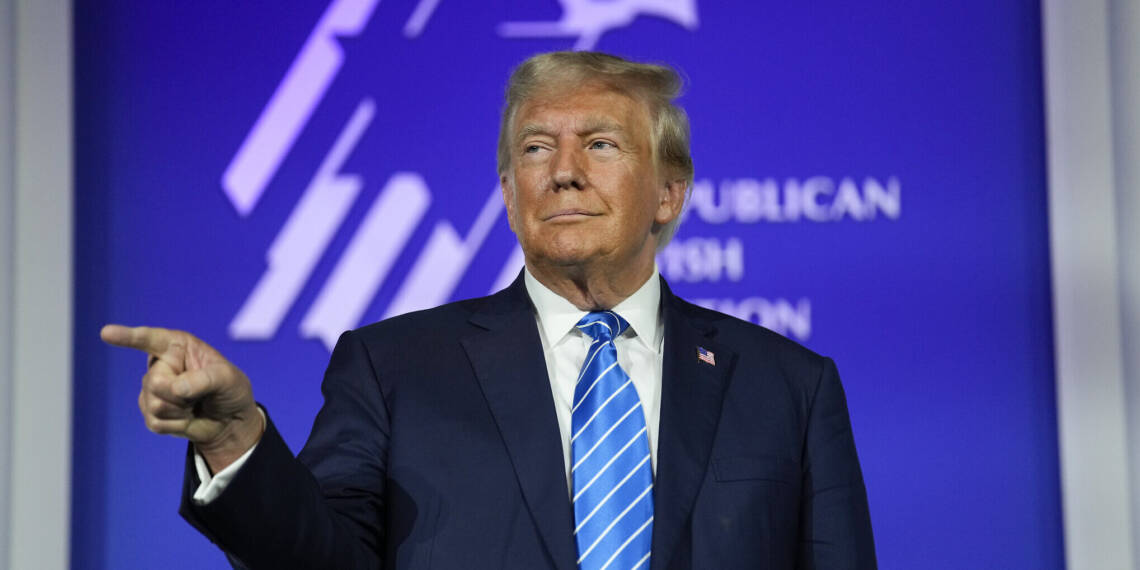The New York Times reports a mounting apprehension within German leadership regarding the potential survival of NATO under the presidency of Donald Trump. The Republican frontrunner, known for expressing skepticism about the bloc’s utility, has accused its members of benefiting without contributing adequately to the alliance, particularly singling out alleged freeloading by the United States. This concern arises from Trump’s repeated questioning of NATO’s efficacy and the perception that his presidency could jeopardize the cohesion of the alliance. The implications of such doubts extend to the longstanding transatlantic security partnership, with Germany and other NATO members uneasy about the future trajectory of the alliance should Trump secure reelection.

In a recent address to supporters in Las Vegas, Donald Trump asserted that the United States is “paying for NATO, and we don’t get so much out of it,” adding that “if we ever needed their help, let’s say we were attacked, I don’t believe they’d be there.” Trump’s reproach of NATO is not a recent development; back in 2017, he declared the military bloc as “obsolete.”
Join us on Telegram: https://t.me/tfiglobal
Despite these critiques, Trump continues to maintain a strong lead in the race for the Republican presidential nomination, with several competitors having withdrawn from contention.
According to a New York Times article published on Saturday, senior German officials harbor significant concerns regarding NATO’s potential survival in the event of a second term for President Trump. Unofficial discussions purportedly occurring in Berlin and other European capitals are reportedly centered on the possibility of the bloc disintegrating, marking a notable shift from earlier discussions of “new unity” amid Russia’s military campaign against Ukraine in February 2022. The article characterizes this change in thinking as an “astounding reversal.”
“Their immediate concern is growing pessimism that the United States will continue to fund Ukraine’s struggle,” the NYT reported, highlighting a months-long congressional stalemate over President Biden’s proposed $60 billion aid package for Kiev as a contributing factor to this growing concern among German officials.
Read More: Trump’s NATO jibe is a 100% correct and 200% effective
Republicans have linked the approval of additional defense aid for Ukraine and Israel to the condition that the administration implements stricter controls on the U.S.-Mexican border to manage the influx of migrants. This linkage, reported by The New York Times in December, is based on information from undisclosed sources.
According to the report, European Union diplomats and representatives from various think tanks have engaged in outreach efforts, seeking information from associates of Mr. Trump. Their inquiries specifically revolve around the potential withdrawal of the United States from NATO.
In a statement made earlier that month, Mark Esper, the former U.S. Secretary of Defense under President Trump from July 2019 to November 2020, asserted on MSNBC that if Trump were to be reelected, he would discontinue support for Ukraine.
“His next move would be to begin pulling us out of NATO, certainly troops out of NATO countries,” the former Pentagon chief claimed. Esper warned that such a scenario “could cause the collapse of the alliance.”

Throughout his tenure, Trump consistently criticized NATO members for not meeting U.S. defense spending levels, despite significant disparities in Gross National Product among NATO nations.
Read More: Kremlin Reacts to NATO’s ‘Military Schengen’ Proposal
As President Biden faces potential challenges in securing re-election and Donald Trump’s assertive stance on NATO spending resonates with voters, European concerns are escalating, NYT reported.Apprehensive about a Trump presidency that might deviate from the traditional U.S. role as NATO’s protector, European nations are hastily increasing their defense budgets to appease the former president. Billions are being allocated to NATO, driven by the apprehension that American security guarantees could become conditional on achieving the desired 2% of GDP spending target.
This sudden influx of funding reflects a palpable reality: Europe’s accustomed reliance on U.S. leadership is in jeopardy, prompting the continent to hedge its bets for an uncertain future. While Trump’s pre-election warnings may be strategic rhetoric, they have resonated in Europe, revealing a vulnerability that European nations are urgently attempting to address and hence Germany fears are constantly growing that NATO would collapse under Trump’s presidency.







